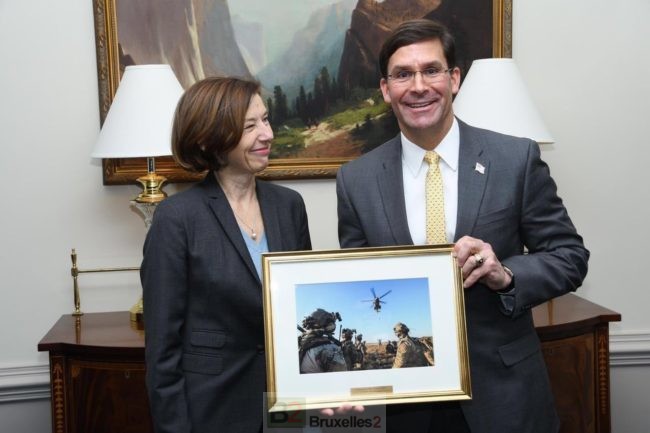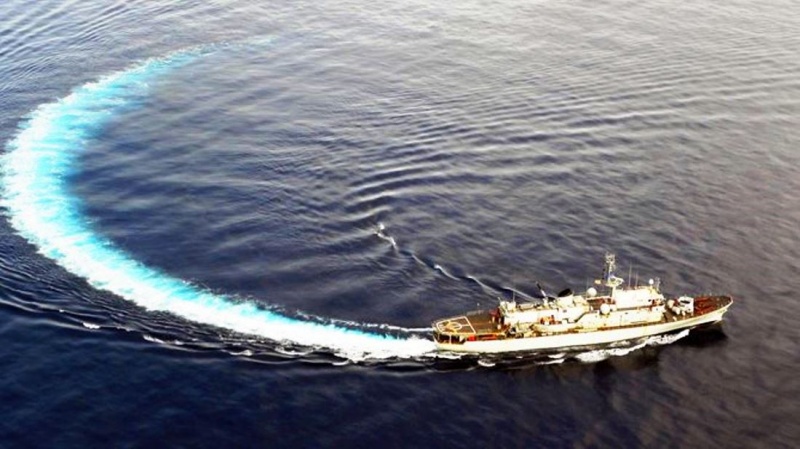Florence Parly's 'honeymoon' in Washington ends in disarray
(B2) French Minister of the Armed Forces Florence Parly had come to Washington to ask the Americans to please stay in Africa, especially in the Sahel. She leaves empty-handed, listening to the Americans

A " real operational honeymoon between France and its American ally, had tweeted French Minister for the Armed Forces Florence Parly during her meeting with US Secretary of Defense Mark Esper at the premises of the French Embassy in Washington.
Russian and Chinese threats
But this 'honeymoon' seems to have ended in rout if one reads the official report prepared by the Pentagon. The two responsible acknowledged the threats posed by Russia and China in this era of great power competition ' indicates the 'readout' published after the meeting. Mark Esper has thanked the Minister for her commitment to burden sharing and discussed how the United States and France can continue to work together to deepen transatlantic cooperation and ensure collective security "... Short !
Thank you very much, ask the Europeans
During his press conference, the American was explicit. He paid tribute to France: A true leader in the Sahel. I give great credit for what they have done, their commitment, thousands of soldiers. " But that's all ! The Sahel is the business of Europeans: it is up to them to show solidarity. " I think it's time for other European allies to help in the region as well, and that could offset the changes we will make as we consider the next steps in Africa. said Mark Esper.
Comment: a statement not to be taken lightly...
The subject is hard, frank and direct. But how not to share it. By dint of shouting "on his chair like a kid while saying Europe!" Europe! Europe!...” to use the expression of General De Gaulle (1), the Europeans must assume. The Sahel is indeed more important for Europe for the United States. It's up to us.
It is unthinkable today that a continent like Europe, which calls itself a 'power', which affirms the importance of defense every four mornings, is incapable of providing the necessary strategic transport or information and intelligence (ISR) in particular. It has been almost thirty years since the observation of these shortcomings was drawn up, in a very precise way, in particular during the first Gulf war in 1990-1991 or the intervention in Kosovo in 1999. It is time to move on to the 'work.
On the other hand, it would be interesting for the Americans to hold the same discourse vis-à-vis Iran, by letting the Europeans let the question which concerns them more be managed, by the geographical proximity of the country to the continent. How can we not also see in this decision, which follows a strategic, logical path (concentrate the American effort on Asia and the Middle East), a certain tactical sense. The timing is not accidental.
By announcing this departure, Washington put pressure on Paris, as it did on Berlin with the announcement of possible taxes on vehicles. Or how he pressures London, with the negotiation of a post-Brexit trade agreement. Carefully dosed blackmail, which 'hits' where it hurts, to make each of the parts of the E3 (France, Germany, United Kingdom) bend, engaged in a major diplomatic challenge: to keep the agreement on the Iranian nuclear. This JCPOA hated in Washington and that Donald Trump has sworn to bring down.
(Nicolas Gros-Verheyde)
- Remarks made between the two rounds of the 1965 presidential election in an interview with Michel Droit.


